Clifton Hill recently caught up with the talented Tristan Avakian, a seasoned professional guitarist and musician with a wealth of experience in theater, touring, and writing/producing.

Throughout his career, Tristan has collaborated with renowned names like Cirque du Soleil, Lauryn Hill, Mariah Carey, Trans Siberian Orchestra, and Biohazard. Notably, he has worked alongside accomplished producers such as Steve Thompson and Rob Thomas.
Currently, Tristan is wrapping up his “Return to Grace” run at the Fallsview Casino but will be returning this August for the One Vision of Queen featuring Marc Martel show.

Join us as we delve deeper into Tristan Avakian’s fascinating journey and uncover some insights of his musical artistry.
Q: From touring with different acts to now performing with Return to Grace in Niagara Falls, what are some of the most memorable moments or experiences you’ve had on stage that have left a lasting impact on you?
Tristan: As a musician, every moment is significant if you stay connected, present, and committed to your craft. One of my most memorable experiences is happening right now. After moving from Toronto to the States in 2021, Return to Grace feels like a return to grace, actually. I’m revisiting Toronto, reuniting with old friends I’ve missed, some of whom are in the production. The Fallsview setting is beautiful, and the staff has been amazing to us.
Q: As a guitarist, you’ve had the opportunity to play a wide range of musical genres. Are there any specific styles or genres that you particularly enjoy, and how do they influence your work with Return to Grace?
Tristan: I moved to Nashville about a year and a half ago. I come from a rock background, but I’ve always been fascinated with hot country guitar. Now that I can go see world class country guitar virtuosos almost any night of the week, I’m learning how to actually do it. However, I felt like I was missing something. Return to Grace has given me a perfect opportunity to assimilate the basic text of country guitar. (Original Elvis guitarists) Scotty Moore and James Burton are a much better starting point – they kind of wrote the book. Playing Return to Grace has elevated every aspect of my country playing.”
Q: Throughout your career, you’ve likely encountered various technical challenges during live shows. Can you share a particular instance where you had to think on your feet to overcome a technical issue without letting it affect the performance?
Tristan: Just before show 3 of the run, my guitar pedalboard malfunctioned – it’s very high-tech, like a computer, and it was refusing to boot up. Thankfully, the venue, Fallsview, has a wide selection of gear on hand, and their backline guy quickly set me up with a traditional amp/pedal setup. Surprisingly, it sounded better than what I was originally using. Now I’ve got an old school, rude, loud amplifier behind me, everything feels far more authentic. It’s pretty much exactly what you hear on the original recordings: a raging electric guitar busting out of an gritty little tube amp…. the sound that set the world on fire.
Q: With such an extensive catalog of Elvis Presley’s music, how do you and the band ensure that each performance feels fresh and engaging for the audience night after night?
Tristan: It feels fresh and engaging because it is. We have a “book”, but we aren’t on rails. Steve (Michaels) likes to play with the form and mess with the audience, and of course – like Elvis – he cues the breaks and endings. It’s different from night to night… he is very spontaneous. We’ll be genuinely surprised and delighted at least once a show.
Elvis himself had a great sense of play and fun… it was a huge part of his appeal, and Steve kind of embodies that. We watch him, and know when to push, or lay back.
I’m surrounded by fantastic musicians – Ken Post and Rich levesque are an outstanding rhythm section – and we’re always listening to each other. Also, Marc Ganetakos (guitar2) and I are always kicking the ball back and forth. You can hear us trading eights at the end. We are never bored, and I guarantee that you won’t be either. Even if you don’t understand a thing about music, and have no idea what I’m talking about, you’ll feel it, and have a great time.
Q: Collaborating with other musicians often leads to unique creative opportunities. Is there a specific collaboration or project with another artist that stands out to you as particularly inspiring or creatively fulfilling?
Tristan: Last year, I collaborated with Frontiers, an Italian label known for melodic AOR rock. They paired me with singer Gregory Lynn Hall for a project called “Killer Kings.” While I didn’t contribute to the songwriting, I had complete artistic freedom to add my personal touch. Instead of sticking to conventional norms, I made the music colorful and expressive, paying homage to various influences like Richie Blackmore, Steve Vai, Eddie Van Halen, and even Jimmy Page. The label embraced the creativity, making the album stand out. It was a fun experience, and you can find it on Frontiers under the title “Killer Kings.”
Q: Return to Grace pays tribute to one of the most iconic figures in music history. How do you and the band strike a balance between honoring Elvis’s legacy and bringing your own interpretations to the music?
Tristan: During performances, I tend to add my personal touch to the music, although there’s already a lot happening on stage. I make sure to stay true to the period and style to maintain the mood and keep the audience engaged. Nobody wants a Steve Vai run in the middle of a ’50s ballad, including the bandleader.
Q: Beyond your work as a live performer, have you been involved in any interesting studio recordings or music production projects recently? If so, what was that experience like, and can you tell us about the musical direction of the project?
Tristan: One remarkable experience for me was working with Jim Carroll on his last record, “Pools of Mercury.” It combined post-rock and spoken word with ambient soundscapes, allowing me to explore different styles. I contributed to the music and also did some writing. It was artistically fulfilling, and having creative freedom made it even more special. The album was released on a major label and featured a diverse range of genres, from punk rock to cinematic themes, which allowed me to express my artistic vision freely. It’s probably the coolest thing I’ve ever done, embracing my inner art weirdo.
Q: Throughout your career, you’ve likely faced various personal and professional milestones. Looking back, is there a specific moment or achievement that you consider a turning point in your journey as a guitarist and musician? How did it shape your future endeavors?
Tristan: One significant turning point in my career was getting hired by Brian May for the Toronto production of “We Will Rock You”. I’d just arrived in Canada, and suddenly I was playing with the best musicians in Toronto, and therefore, some of the best on the planet. The experience led to many other musical theatre productions, and eventually to “Queen Extravaganza,” Roger Taylor’s official Queen tribute, where I met Marc Martel. We’ve continued working together to this day, playing Queen’s music for countless thousands of fans all over the world. It’s the gift that keeps on giving.
Don’ miss the upcoming One Vision of Queen featuring Marc Martel show at the Fallsview Casino this August on the 24th, ticket are moving fast!














